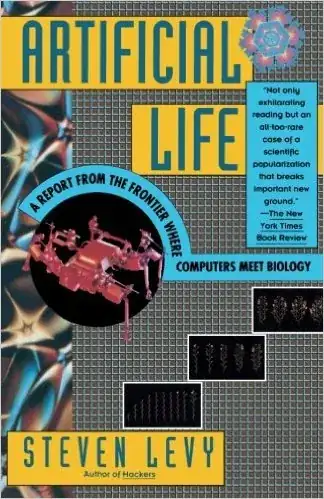If you read Steven Levy's book, Artificial Life,you will find, as I did,

the distinction between biological and "artificial" life blurred. If you think about it, what exactly is "life", anyway? A set of complex systems with emergent behavior capable of evolution and adaptation.
A prototypical biologist may not define life that way. Indeed, he would, not being focused or concerned with the computational aspect, define it in a way that would narrow it down to biological life.
Marvin Minsky mention the concept of luggage words, and I myself came up with the notion of mirage concepts. For the former, that which we don't understand gets lump into the word. For the latter, when you take a "mysterious" concept apart, it vanishes like a mirage does as you get closer.
So what is life? If we look at a "living" organism, we'd all that "life". If we remove a single cell from that organism, we'd still call that "life". But what if we remove a single organelle like, say, a ribosome? Lysosome? Contractile vacuole? Endoplasmic reticulum? Is that still "life"? What if we remove a macromolecule from that? Is that still "life"?
As you see, all becomes very murky, and I do this on purpose to illustrate just how arbitrary the very concept of "life" is.
So I think my definition is a good one, broad enough to encompass both in-silico and the organic versions. It bespeaks to algorithms, robots, viruses -- yes both computer and organic... anything that has complexity and the ability to adapt and evolve.
